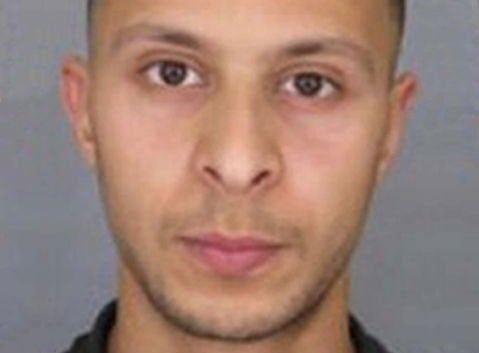Salah Abdeslam: The ghost jihadist whose greatest mistake was staying alive
If the self-proclaimed 'Islamic State' had given up on the terrorist, police forces in France and Belgium had not

Your support helps us to tell the story
From reproductive rights to climate change to Big Tech, The Independent is on the ground when the story is developing. Whether it's investigating the financials of Elon Musk's pro-Trump PAC or producing our latest documentary, 'The A Word', which shines a light on the American women fighting for reproductive rights, we know how important it is to parse out the facts from the messaging.
At such a critical moment in US history, we need reporters on the ground. Your donation allows us to keep sending journalists to speak to both sides of the story.
The Independent is trusted by Americans across the entire political spectrum. And unlike many other quality news outlets, we choose not to lock Americans out of our reporting and analysis with paywalls. We believe quality journalism should be available to everyone, paid for by those who can afford it.
Your support makes all the difference.Salah Abdeslam was a ghost, a jihadist whose presence in Europe was, four months after the Paris attacks, subject to considerable doubt.
He could not remain un-found, surely, with an entire continent singularly focused on capturing the man who slicked the Paris pavements in blood? He could, it seemed.
Detained at the pleasure of the same Belgian police he avoided at every turn for almost four months, his leg injured in a gunfight, the 26-year-old jihadist whose struggle against unbelievers was completed with Paris attacks, may have been thinking that his greatest mistake was staying alive.
His conspirators in terror, the other Isis jihadists who, on 13 November murdered more than 130 people in Paris, were soon dead. Abdelhamid Abaaoud, the Paris cell leader, was dead days after the attack, killed by French security forces. Also dead was Abdeslam’s brother, suicide bomber Brahim Abdeslam.
But Abdeslam suvived. He dumped his suicide belt in a dustbin in Montrouge, just south of the Paris city boundary, in the early hours after the attacks. He made a mobile telephone call from Montrouge a few hours before he was “rescued” by two friends from Brussels at 5am on the Saturday. He was then seen in northern France, looking nonchalant. With him that morning was his friend Hamza Attou, now in custody.
Abdeslam eventually returned to the Belgian capital, Brussels, where he holed up in the districts he knew best, restive Molenbeek, newly identified as the hotbed of Europe’s Islamist movement. Those familiar with Molenbeek’s combination of crushing poverty, isolation, and lack of employment opportunities had forewarned an Islamist uprising. Still, that Abdeslam had been plotting their attack in the Belgian capital was a surprise to authorities in both countries.
The trail went cold, opportunities to capture a man wanted across a continent were missed. Culpable, certainly, were Belgian police. Their error was admitted, and authorities promised lessons would be learned.
A month before the attacks, Molenbeek Mayor Françoise Schepmans, received a list with the names and addresses of more than 80 people suspected as Islamic militants living in her area. On that list were the brothers Abdeslam and Abaaoud. “What was I supposed to do about them? It is not my job to track possible terrorists,” Ms Schepmans said. That, she added, “is the responsibility of the federal police.
Still, at the turn of the New Year, Abdeslam eluded authorities. Some believed he had travelled on the migrant trail to Syria. But police forces across the Continent still believed that in the case of Abdeslam, absence of evidence did not constitute evidence of absence.
The investigations continued. Eventually, searches of the Schaebeek neighbourhood of Brussels found the flat where the suicide belts used in the attacks were almost certainly constructed. Also found in the flat were Abdeslam’s finger prints. “You will never see me again,” were Abdeslam’s last words to a friend in Schaerbeek before he left the district.
Almost certain was that he would not return to Isis. His failure to die in the Paris attacks, and his fleeing, made him a “non-person” in the eyes of the jihadist group. He did not even feature in the propaganda videos of the Islamists after the attack.
French and Belgian investigators believed that Abdeslam refused to carry out a suicide bombing and was, therefore, as much on the run from Isis as from Europe’s police forces.
If the self-proclaimed “Islamic State” had given up on Abdeslam, police forces in France and Belgium had not. In Molenbeek, they finally had their man.
Join our commenting forum
Join thought-provoking conversations, follow other Independent readers and see their replies
Comments